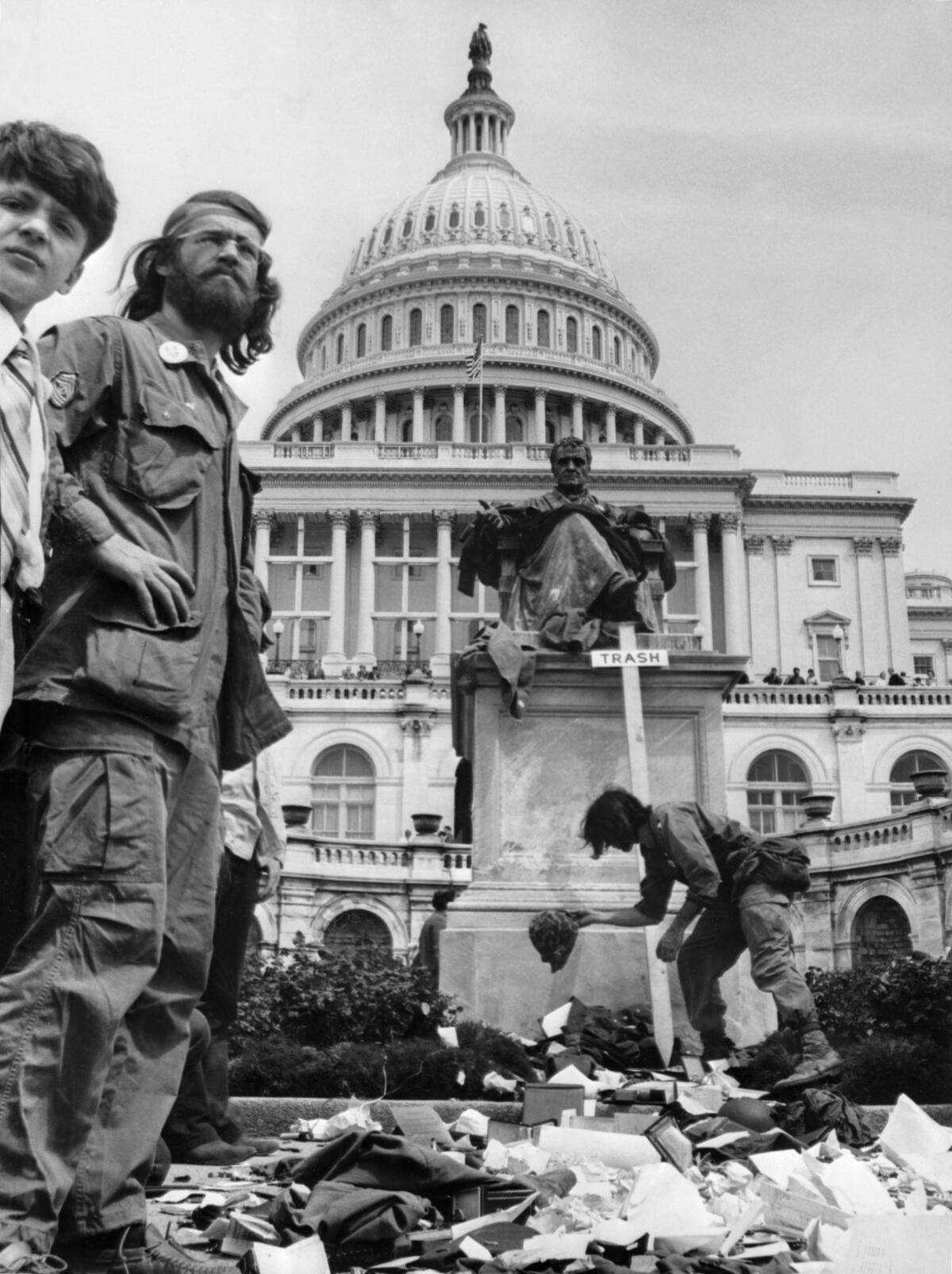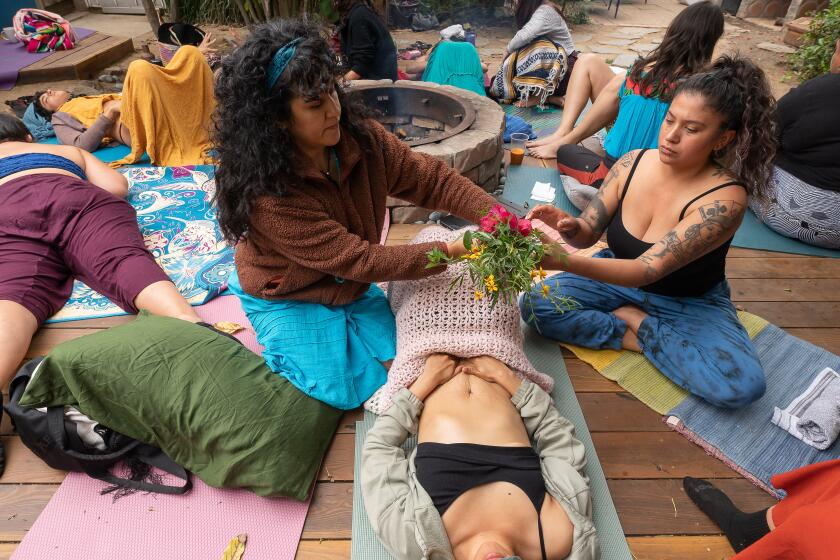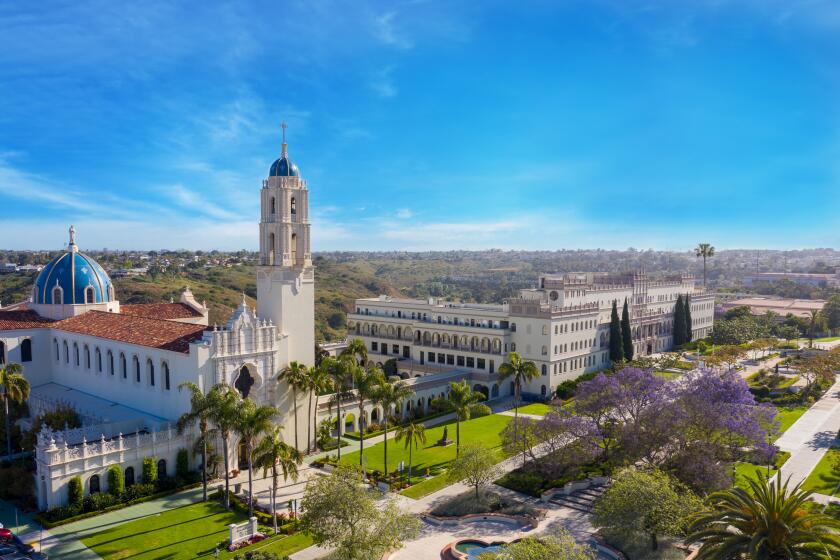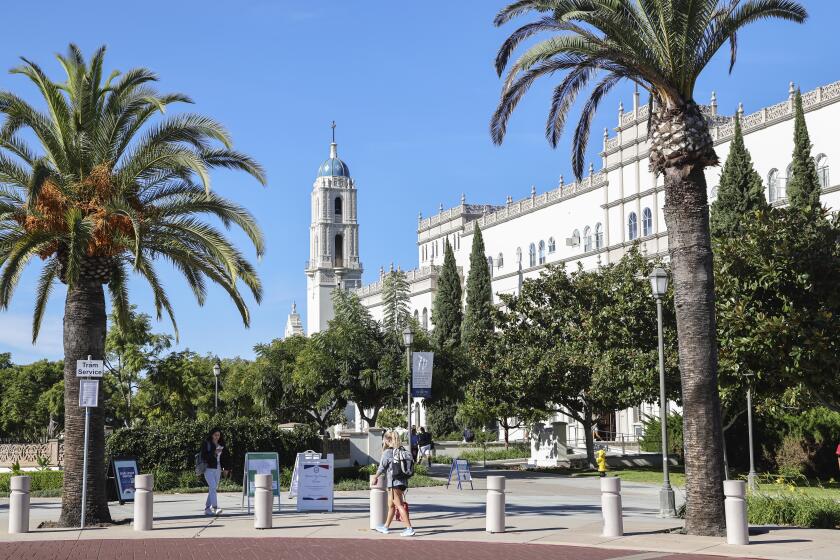Opinion: 50 years ago, Vietnam veterans marched peacefully on the U.S. Capitol. This deserves remembering.

Daddis is the USS Midway chair in Modern U.S. Military History at San Diego State University and author of “Pulp Vietnam: War and Gender in Cold War Men’s Adventure Magazines.” He lives in Kensington.
Among the most disturbing revelations about the Jan. 6 Capitol riot was the discovery that veterans of the U.S. armed forces were among the insurrectionists.
Any veterans who ransacked the legislative offices—at least one of whom has been accused of intending to take hostages—were violating their oaths to the Constitution in new and appalling ways.
Fifty years ago next week, another group of veterans marched on the U.S. Capitol. The disparities are stark. Instead of engaging in criminal behavior, these far more principled veterans in 1971 were participating in peaceful dissent.
We provide this platform for community commentary free of charge. Thank you to all the Union-Tribune subscribers whose support makes our journalism possible. If you are not a subscriber, please consider becoming one today.
Such differences matter. Americans have long enjoyed a special relationship with the veteran community, honoring its members for their service and, at times, lionizing them in unhealthy ways. So when these same vets step outside their socially sanctioned roles, the blowback can be fierce.
Such was the case for the Vietnam Veterans Against the War (VVAW). The organization began as a community of veterans morally and philosophically opposed to the American war in Southeast Asia. By early 1971, the VVAW’s appeal had gained substantial national reach.
Over the 1970 Labor Day weekend, veterans simulated “search-and-destroy” missions during a 90-mile march from Morristown, New Jersey, to Valley Forge, Pennsylvania. Veteran peace activists engaged in “guerrilla theater” and re-enacted “village sweeps” in local communities.
Their next event took place in Detroit in late January 1971, specifically assailing the United States’ “criminal policy” in South Vietnam. In a series of public hearings, labeled the “Winter Soldier Investigation,” organizers featured veteran testimony about atrocities committed by American soldiers in Vietnam.
The forum produced more than 200 allegations of GI criminal behavior. For three days, stories of cruelty and destruction followed one after another in a grisly procession. Lt. William Crandell’s opening statement noted how “we went overseas to preserve the peace” and, instead, “set all of Indochina aflame.” To another vet, the war had devolved into an “atrocity-producing situation” and was “bordering on full and final genocide.”
According to these “winter soldiers,” the U.S. Army in Vietnam had degenerated into a ruthless mob, instead of proudly embodying American ideals abroad.
The winter soldier hearings set the stage for a much larger, week-long rally in Washington, D.C., that spring. Planners intended Operation Dewey Canyon III — named after two previous U.S. campaigns against communist forces in Laos — to serve as a “limited incursion into the country of Congress.”
Veteran activists would march throughout Washington, D.C., lobby House and Senate leaders, and host anti-war speeches. Of course, these protesters differed from the supposedly effete college elite that Vice President Spiro Agnew was so fond of attacking. Condemning veterans presented clearly uncomfortable political risks for the Nixon administration.
By April 19, 1971, more than 1,000 veterans had descended on the nation’s capital. Over the next four days, that number would more than double. On April 24, some 500,000 demonstrators added their voices to the veterans’ dissidence.
They marched to Arlington Cemetery, only to be turned away. But they later gained access with a contingent of Gold Star mothers. They conducted a sit-in at the Supreme Court, demanding the justices “rule on the constitutionality of the Vietnam War.” And they lobbied on Capitol Hill, presenting testimony to the House Foreign Affairs Subcommittee.
Before the Senate Committee on Foreign Relations, U.S. Navy Lt. John Kerry denounced the war and the psychological damage it was causing fellow veterans. The future senator argued his country had “created a monster ... men who are given the chance to die for the biggest nothing in history, men who have returned with a sense of anger and a sense of betrayal which no one has yet grasped.” Kerry maintained the United States was fighting a “mystical war against communism” and argued that Americans had entered into a Vietnamese civil war where they did not belong.
Operation Dewey Canyon III concluded that April with a dramatic spectacle as veterans threw away their medals, ribbons and awards citations on the steps of the U.S. Capitol. One bearded vet proclaimed: “The Bronze Star, here, they gave it to me for killing 14 people, man. It’s not worth s---.” By noon, discharge papers, Silver Stars, Purple Hearts, even Distinguished Service Crosses littered the Capitol grounds. The very symbols of warriors’ service and sacrifice became a trash heap.
While denounced by some, many more Americans applauded the April 1971 anti-war protest at the Capitol. Dissenting against policy can be noble, even patriotic. Indeed, one recent veteran has called such dissent “participatory principled patriotism.”
The unlawful, violent riot on Jan. 6 of this year, however, was antithetical to the ideals espoused by America’s founding institutions, including the military.
The Vietnam Veterans Against the War deserve our contemplation, if not admiration. Today’s domestic terrorists cum veterans warrant only our shame and accounting.
Get Weekend Opinion on Sundays and Reader Opinion on Mondays
Editorials, commentary and more delivered Sunday morning, and Reader Reaction on Mondays.
You may occasionally receive promotional content from the San Diego Union-Tribune.






